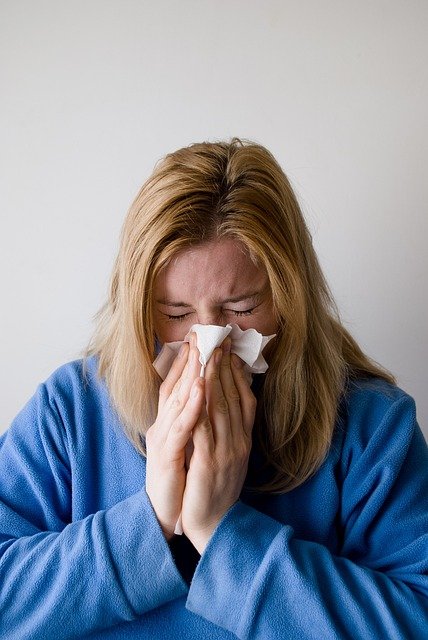
Cold Weather or getting wet doesn't cause common Cold.
For quite a long time, many have come to believe that cold weather (or even getting wet) can cause common cold.
You'll find parents making sure that their children are well clad and stay warm all in a bid to prevent them from catching a cold.
And although there are valid reasons, even health related ones, why you should keep warm during a cold and avoid getting wet but catching a cold is not one of them.
Cold is caused by any one of several viruses that causes inflammation of the membranes that line respiratory tract. There are over 200 different such viruses but, the rhinoviruses causes most colds.
Rhinovirus are those that spread through respiratory droplets. "Rhin" means "nose" and the reason they are so called may be because they proliferate within temperatures of 33-35°C, which is the temperature found in the nose.
Colds usually start 2 to 3 days after the virus enters the body and symptoms last from several days to several weeks.
This viruses spread from another person who is infected with the virus. This can be by direct physical contact with an infected person or by touching contaminated surfaces ( like a table surface, computer keyboard, doorknob e.t.c) and then touching your nose or mouth.
It can also be airborne through infected droplets in the air released by a sneeze or a cough.
A handful lot of causes but cold weather or getting wet is not within arm's length.
However, the belief that cold weather causes a cold isn't entirely wrong, in some sense.
This is because it is evident that more colds do occur during the cold season.
This is probably due to a variety of factors. First, people tend to be more crowded as they stay more indoors, increasing the risk of exposure to the Virus.
Also, low humidity in cold weather causes dry nasal passages which are more susceptible to cold viruses infection. The likely reason being that cold weather inhibits the ability of mucus and nasal hairs to work disease agents out of your nose.
Furthermore, some viruses like the rhinovirus are actuall more likely to spread during cold weather. Because it replicates better at cooler temperatures, such as those found in the nose.
In essence, don't be surprised if you come down with a cold even after keeping warm or avoid getting wet or even in a hot weather.
Simple hygiene practices like washing hands, cleaning frequently used surfaces and even avoiding crowded areas will go a long way in prevent yourself from catching a cold.
It should be noted, however that cold symptoms may look like other medical conditions. And it is advisable to always consult a healthcare provider for a diagnosis if your symptoms are severe.